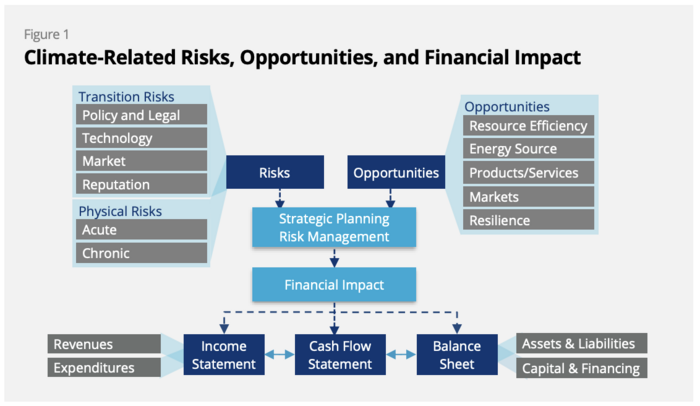Wiki test: Difference between revisions
add data section |
No edit summary |
||
| Line 118: | Line 118: | ||
<h3>Data</h3> | <h3>Data</h3> | ||
</div> | </div> | ||
<!-- Place the references tag outside of the div --> | |||
<div style="display: flex; justify-content: space-between; margin-bottom: 10px;"> | |||
<div style="width: 95%; padding-right: 20px;"> | |||
== References == | |||
<references /> | |||
Revision as of 18:46, 7 September 2024
Welcome to UW Climate Risk Lab Wiki,
the place for best climate risk data, analysis, and tools available for all.
UW Climate Risk Lab
The UW Climate Risk Lab (CRL) is a multidisciplinary research and innovation center based at the University of Washington Foster School of Business in the Department of Finance & Business Economics. Established in 2022, it advances data and technology solutions to issues in climate-related financial risk for corporate and government decision-makers. Phillip Bruner, co-founder of the CRL, currently serves as its Executive Director.
The CRL brings together academics and professionals in climate finance, risk management, business analytics, data engineering, computer science, atmospheric sciences, supply chains management, information systems and AI. It collaborates with several initiatives within the University of Washington (UW), which include the Buerk Center for Entrepreneurship, Clean Energy Institute, Creative Destruction Lab, eSciences Institute and Urban Infrastructure Lab. Its external partners include: the Duke Energy Data Analytics Lab, the Pacific Northwest Mission Accelerator Center, and Washington Maritime Blue.
License Information
This website’s content is licensed under a Creative Commons Attribution 4.0 International License.
You are free to:
- Share — copy and redistribute the material in any medium or format for any purpose, even commercially.
- Adapt — remix, transform, and build upon the material for any purpose, even commercially.
- The licensor cannot revoke these freedoms as long as you follow the license terms.
What is climate risk?
Climate risk is the potential for negative consequences for human or ecological systems from the impacts of climate change. [1] It refers to risk assessments based on formal analysis of the consequences, likelihoods and responses to these impacts and how societal constraints shape adaptation options. [2] [3] The science also recognizes different values and preferences around risk, and the importance of risk perception. [4]
Data
References
- ↑ IPCC, 2022: Annex II: Glossary [Möller, V., R. van Diemen, J.B.R. Matthews, C. Méndez, S. Semenov, J.S. Fuglestvedt, A. Reisinger (eds.)]. In: Climate Change 2022: Impacts, Adaptation and Vulnerability. Contribution of Working Group II to the Sixth Assessment Report of the Intergovernmental Panel on Climate Change [H.-O.Pörtner, D.C. Roberts, M. Tignor, E.S. Poloczanska, K. Mintenbeck, A. Alegría, M. Craig, S. Langsdorf, S. Löschke, V. Möller, A. Okem, B. Rama (eds.)]. Cambridge University Press, Cambridge, UK and New York, NY, USA, pp. 2897–2930, doi:10.1017/9781009325844.029.
- ↑ Adger WN, Brown I, Surminski S (June 2018). "Advances in risk assessment for climate change adaptation policy". Philosophical Transactions. Series A, Mathematical, Physical, and Engineering Sciences. 376 (2121): 20180106. Bibcode:2018RSPTA.37680106A. doi:10.1098/rsta.2018.0106. PMC 5938640. PMID 29712800.
- ↑ Eckstein D, Hutfils M, Winges M (December 2018). Global Climate Risk Index 2019; Who Suffers Most From Extreme Weather Events? Weather-related Loss Events in 2017 and 1998 to 2017 (PDF) (14th ed.). Bonn: Germanwatch e.V. p. 35. ISBN 978-3-943704-70-9. Retrieved 7 December 2019.
- ↑ Ara Begum, R., R. Lempert, E. Ali, T.A. Benjaminsen, T. Bernauer, W. Cramer, X. Cui, K. Mach, G. Nagy, N.C. Stenseth, R. Sukumar, and P. Wester, 2022: Chapter 1: Point of Departure and Key Concepts. In: Climate Change 2022: Impacts, Adaptation and Vulnerability. Contribution of Working Group II to the Sixth Assessment Report of the Intergovernmental Panel on Climate Change [H.-O. Pörtner, D.C. Roberts, M. Tignor, E.S. Poloczanska, K. Mintenbeck, A. Alegría, M. Craig, S. Langsdorf, S. Löschke, V. Möller, A. Okem, B. Rama (eds.)]. Cambridge University Press, Cambridge, UK and New York, NY, USA, pp. 121–196, doi:10.1017/9781009325844.003.
- ↑ IPCC (2018). Global Warming of 1.5°C. An IPCC Special Report. Summary for Policymakers (PDF). Intergovernmental Panel on Climate Change. p. 5.
- ↑ Whetton P, Hennessy K, Clarke J, McInnes K, Kent D (2012-12-01). "Use of Representative Climate Futures in impact and adaptation assessment". Climatic Change. 115 (3): 433–442. Bibcode:2012ClCh..115..433W. doi:10.1007/s10584-012-0471-z. S2CID 153833090
- ↑ About — IPCC". Retrieved 2023-11-16.
- ↑ Imperial College Business School Center for Climate Finance & Investment (February 2022). “What is Climate Risk? A Field Guide for Investors, Lenders, and Regulators.” Available at: https://imperialcollegelondon.app.box.com/s/te5eahz3x47q93vufwwu3ntmf5rxecxs
- ↑ Taskforce on Climate-Related Financial Disclosures (June 2017). “Recommendations of the Taskforce on Climate-related Financial Disclosures: Final Report.” Available at: https://assets.bbhub.io/company/sites/60/2021/10/FINAL-2017-TCFD-Report.pdf
